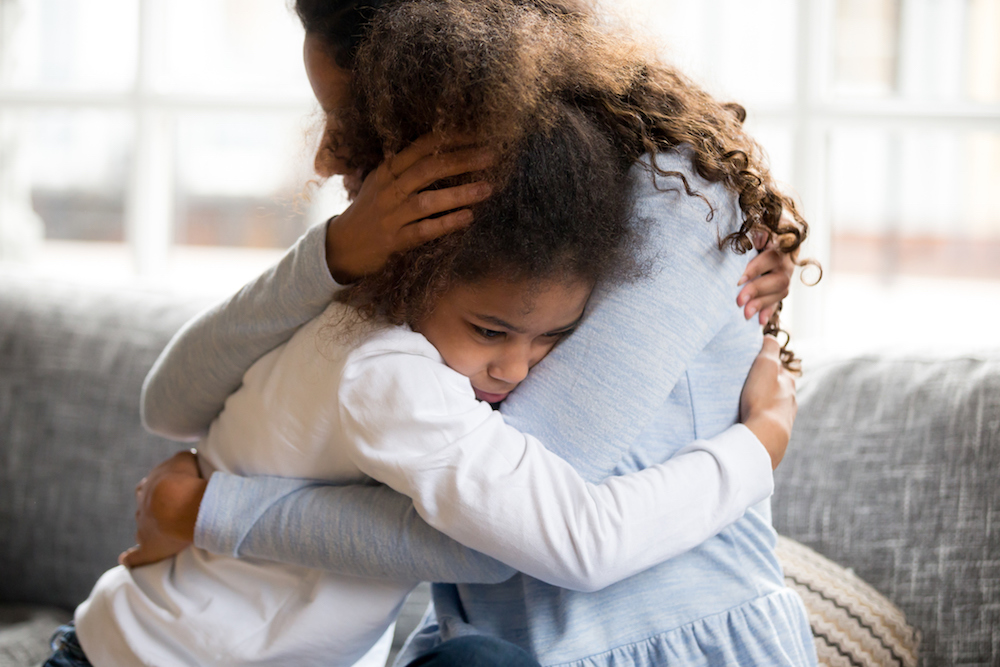Topics

PHOTO: Getty Images
“There can be no keener revelation of a society's soul than the way in which it treats its children.” — Nelson Mandela, former president of South Africa
Children can experience a number of stressors throughout their childhood. It’s important to note not all stress is bad stress. There are generally three levels:
- positive stress
- tolerable stress
- toxic stress
Positive stress refers to common, routine life events that may cause a temporary increase in our stress level from which we quickly recover. Some examples in children include learning to ride a bicycle, getting immunizations at the doctor’s office or the first day of school. Each of these experiences are temporary and do not traumatize the child.
Tolerable stress refers to experiences that are potentially traumatic and cause significant levels of stress in a child that last longer and take more effort from which to recover. Examples include the death of a loved one or surviving a natural disaster. These experiences cause a child’s body to generate a stress response that lasts a bit longer. Over time, the child’s mind and body recover from the experience because of the support of the caring adults around them.
Toxic stress refers to prolonged, traumatic life events that occur for an extended period of time in the child’s life without the protection of an adult. Examples of toxic stress can include abuse (physical, sexual, emotional), neglect (physical, emotional) and household dysfunction (parental mental illness, domestic violence, parental incarceration). In response to this prolonged exposure to toxic events, the child’s body produces a severe stress response that lasts for an extended period of time.
What is the stress response?
“One of the greatest diseases is to be nobody to anybody.” — Mother Teresa
The stress response is our body’s natural reaction to stressful events. The brain becomes aware of a potential threat and sends signals to the body to prepare for a potential need to take action: fight, flight (run away) or freeze (shut down). The body in turn produces a number of stress hormones and neurotransmitters that increase the heart rate and respiratory rate, rev up the immune system, and prepare the mind and muscles to take action. Our stress response is there to protect us from potential danger. However, when the stress response is activated over a long period of time due to prolonged traumatic experiences, the stress hormones begin to tear down the body’s organs and immune system in such a way that a child may develop severe, chronic health problems as an adult.
What are the consequences of toxic stress?
“It is easier to build strong children than to repair broken men.” — Frederick Douglass
The result of this extended stress response is that a child’s nervous system, immune system and even DNA are changed. Toxic stress causes the fear centers of the brain (limbic system, amygdala) to significantly increase in size, and the child can develop symptoms very similar to post-traumatic stress disorder (PTSD). Toxic stress decreases the size and impairs the functioning of the regions of the brain responsible for learning, memory, executive functioning (prefrontal cortex, hippocampus). As a result, the child is placed at risk for having learning and behavior problems. The child’s immune system is suppressed and puts the child at risk for developing a variety of chronic, lifelong health conditions including asthma, heart disease, stroke, autoimmune disease and cancer. The DNA is changed in such a way that the child’s gene expression affects bodily functions and can potentially be passed on to the next generation.
How can we help children overcome the effects of toxic stress?
“If we don't stand up for children, then we don't stand for much.” — Marian Wright Edelman
Children can heal from the effects of toxic stress if they develop healthy relationships with caring, reliable, safe, compassionate adults who guide them through the healing process. Adults can help children heal from their traumatic experiences by helping children build resilience – the ability to overcome adversity. Resilience can be developed over time by providing the child opportunities to build mastery and develop effective strategies for managing stressors and adversity. The following factors contribute to resilience:
- Building a sense of self-efficacy and perceived control
- Providing opportunities to strengthen adaptive skills and self-regulatory capacities
- Mobilizing sources of faith, hope and cultural traditions
The following resources can provide more information about toxic stress and resilience:
- Harvard Center for the Developing Child
- National Child Traumatic Stress Network
- Centers for Disease Control and Prevention (CDC) Adverse Childhood Experiences

